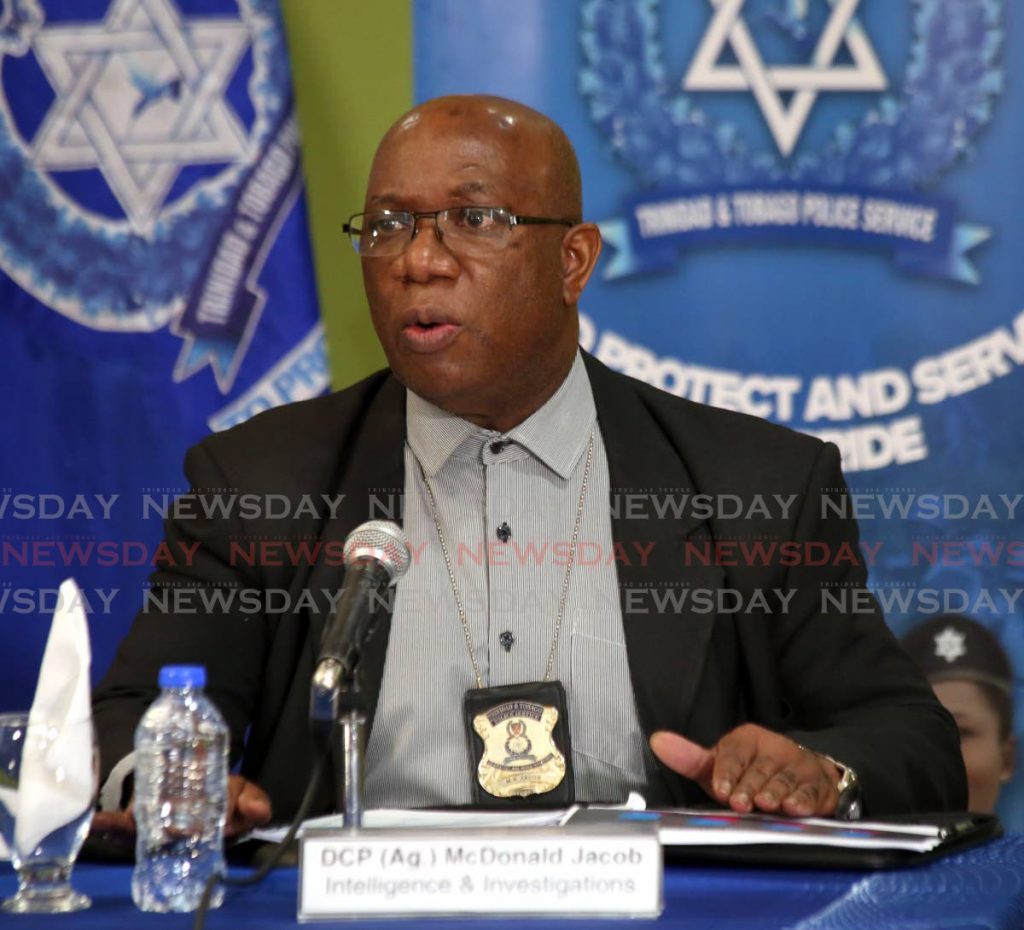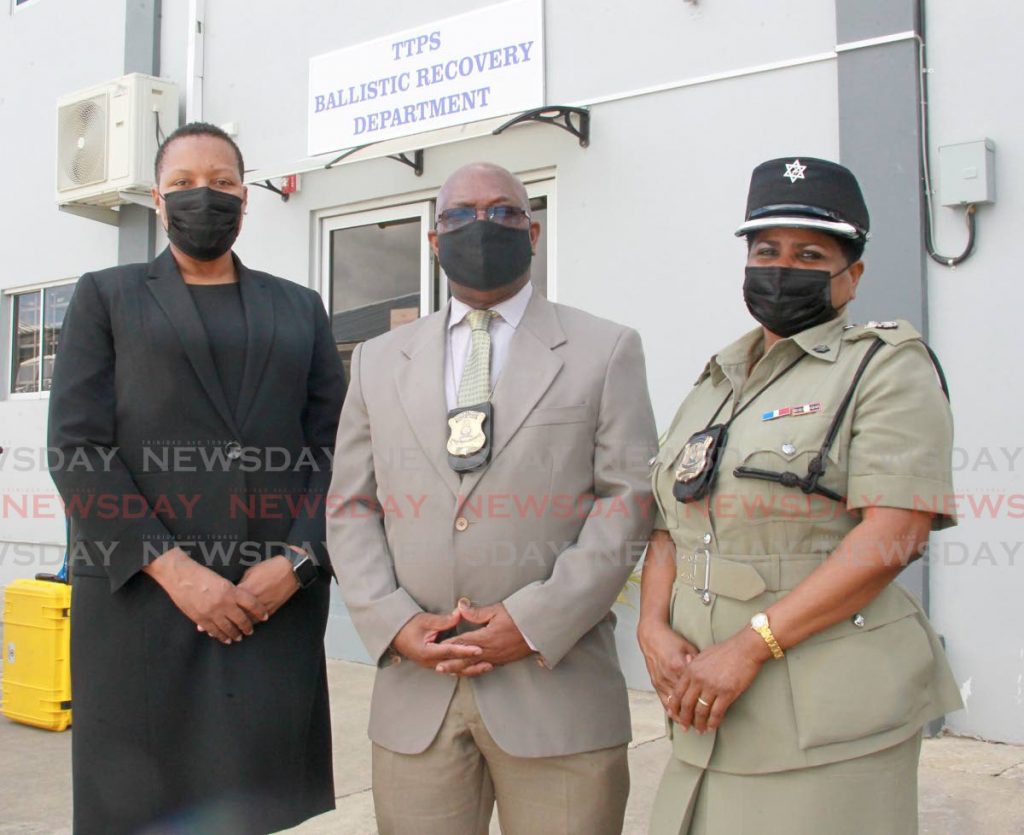DCP McDonald Jacob: I will train officers to lead police service

Career policeman Mc Donald Jacob will spend the next three years as a deputy commissioner of police (DCP) fixing the service to allow younger officers to emerge as leaders.
Jacob said his confirmation by the Parliament last Friday relieved the “psychological effect” of waiting to find out if he was chosen. The debate on whether he should be appointed one of three DCPs was initially scheduled for March 19 but was adjourned to last Friday.
Jacob, head of the Special Operations Response Team (SORT) Insp Mark Hernandez and Supt Andre Norton, who is in charge of the Police Training Academy, were nominated to fill the three DCP vacancies.
“I have served and served long enough, so I won’t be looking to extend my service after this three years. What I want to do in this time is to train and develop those with potential to be the future DCPs and commissioners of police, that are in the service right now in what I call the middle ranks of inspectors and assistant superintendents.”
Jacob, who spent 25 of 41 years in the service in the Criminal Investigation Department (CID), said policing is a calling.
“I consider policing a ministry, a calling. It comes from being a peacemaker from out of the Bible. It is more spiritual, so if I getting a chance to continue God’s work, then why not."
Joining the service at 18, the Princes Town resident, said he always had an affinity for analysis and the science of investigations, so he chose the police service, while most of his peers chose the Defence Force.
The 59-year-old married father of three, and grandfather of one, celebrated his 38-year anniversary with his wife, Erica Fortune-Jacob, on April 7. Jacob was scheduled to retire next year but his wife and family supported his decision to apply to be a DCP.
His wife, he said, understood that he has much to give and that leadership and law enforcement were part of who he is and believed he should have some more time “to develop the law enforcement apparatus of the police service.”
“I want to contribute to the re-engineering of the police service and that is deeper than a transformation. I want the police service to be proficient in investigation using modern, contemporary policing along with technology.”
For over three years, the police service has not had a substantive DCP, since Stephen Williams who retired in 2019, and acted as police commissioner.
Last August, Police Commissioner Gary Griffith lamented that not having the required three DCPs hampered the police service from running as efficiently as he would like.
Last month, Jacob told Newsday he applied to be a DCP to put into practice his years of studies and continue initiatives he began since he was appointed acting DCP (Intelligence and Investigations) a year ago. He has a master's of philosophy in criminology and criminal justice.

He wants to move the service from a traditional way of policing to developing areas to not just improve the detection of crime but prevent it. He said with a high detection and conviction rate would reduce and prevent crime.
He said younger officers, and those interested in joining the service, must understand the duty is one of serve.
"It is thankless job. It demands integrity, responsibility and commitment. Degrees don’t cut it. You need what I like to call life skills, like conflict resolution, leadership skills and critical thinking. You need a high level of commitment. What you see on TV, that is just on TV. Get a good understanding of the law.”
The one-time lecturer at the Cipriani College of Labour added: "If you don’t want to be committed to the cause, don’t join the police service. If you feel it will make you a millionaire, don’t join the police service."
Jacob said his most memorable arrest was that of Darren Roger Thomas who, along with Natasha De Leon, was convicted on November 9, 1995 for the murder of Princes Town taxi driver Chandranath Maharaj in 1993. The couple, who were sentenced to death, had their convictions commuted to life in prison in 2008.
Jacob, the first officer to head the Crime and Problem Analysis Branch (CAPA), said prior to the formation of the unit, he, still being at the CID in San Fernando, was assigned to assist homicide officers in the investigations. He said using his analytical skills he helped narrow down the general area in Princes Town where crimes similar to what happened to Maharaj were taking place.
Doing so allowed them to come across De Leon, having knowledge of the area, investigators were able to track down Thomas.
It was this analysis that made then acting police commissioner James Philbert, move him from the Southern Division and placed him in charge of CAPA, promoting him from sergeant to inspector in 2008. Jacob has also trained with the International Association of Crime Analysis at George Mason University in Washington.
“If you look at the crime statistics we went from 22,000 serious crimes a year to 12 or 13,000. We had a records database before CAPA but there was no analysis of the crimes. When that started happening that informed where there wee patrols. That was the first main aspect in moving from traditional to evidence-based policing.”

Comments
"DCP McDonald Jacob: I will train officers to lead police service"